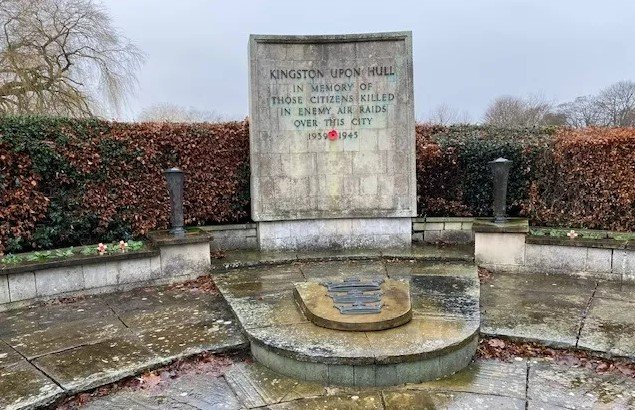UK’s last surviving civilian war ruin to be restored – 80 years after Nazi air raid
LAST RELIC: The National Picture Theatre in Beverley Road. Picture credit: Hull City Council / Neil Holmes
By Simon Bristow, Co-Editor
More than 80 years after it was bombed by the Luftwaffe, the UK’s last remaining civilian ruin from the Second World War is about to be restored.
More than 150 people who were watching a Charlie Chaplin film at the National Picture Theatre in Beverley Road, Hull, escaped serious injury when it was struck by a Nazi bomb during an air raid on March 18, 1941.
It has remained as a bombed out shell ever since, although work will shortly begin on its restoration thanks to funding from Hull City Council and the National Lottery Heritage Fund.
The façade will be restored to its former period style, including its iconic windows and signage. Structural elements – including the two large concrete beams which saved the lives of its wartime audience – will also be preserved.
The venue is to have a new life as a space for community events and education, and will also become a place of reflection for the 1,200 Hull civilians who died during the war.
Gillian Osgerby, programme director at the council, said: “It is great to reach this key milestone in restoring this iconic site and tell its remarkable story. It’s a reminder of how civilians on the home front were affected by the Blitz.
DEVASTATION: The building after it was bombed in 1941
“After London, Hull was the UK’s most bombed city during World War Two and thanks to National Lottery players, we can now remember and recognise the sacrifice that was made.”
The picture theatre was designed by architects Runton and Barry for the De-Luxe Theatre Company and was constructed in 1914. It gained Grade II listed status in 2007 due to its significance as a rare surviving bomb-damaged building from the Blitz.
Air raids on Hull went on longer than on any other British city and more than 90 per cent of the housing stock of 91,660 homes were damaged.
Local contractor Hobson and Porter have been appointed to carry out the work, which is expected to be completed in the autumn. Remedial work to stabilise the building took place in 2020.
The work is being funded with £277,600 from the National Lottery Heritage Fund and £178,300 from the city council.
A service to remember those who died in Hull in the Second World War will be held at the Memorial Cenotaph in Northern Cemetery, Chanterlands Avenue, on Tuesday, May 7 at 2pm.




